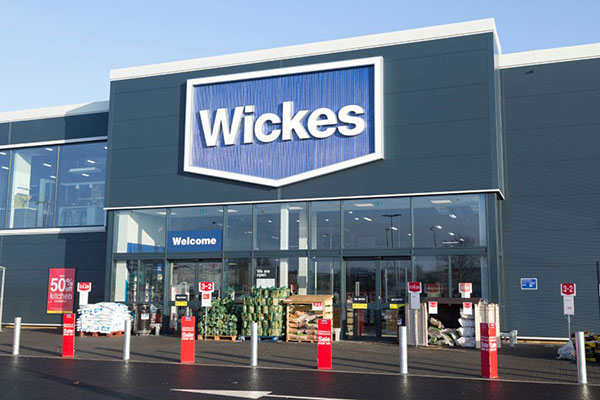Next steps for Wickes as it confirms IPO
Firm to trade on the stock market for the first time in two decades.
24th March 2021 16:08
by Graeme Evans from interactive investor
Firm to trade on the stock market for the first time in two decades.

Wickes’ shares are to trade on the stock market for the first time in two decades, after owner Travis Perkins (LSE:TPK) today filed documents confirming the demerger of the DIY chain.
The long-awaited split is set to take place next month, when every share held in Travis Perkins will entitle its owner to one in the home improvement chain. Wickes operates from 233 stores and recorded revenues of £1.35 billion and operating profit of £82 million last year, having benefited from the pandemic-driven boom in DIY activity to grow like-for-like sales 5%.
The first Wickes store opened in Whitefield, Manchester in 1972 before the company joined the stock market in 1987. However, the shares dived 85% in 1996 as the discovery of accounting irregularities threatened to sink the business.
Bill Grimsey took over as chief executive and led a turnaround until privately-run Focus Do It All tabled a hostile bid for Wickes worth £289 million in 2000. The operation was later bought by builders merchants Travis Perkins for £950 million in 2005.
Plans to demerge the business were revealed in 2019 but had to be put on hold as Travis's management focused on the pandemic and needed to maximise liquidity.
- Lockdown boosts Kingfisher, but it could come down with a bump
- The 31 top value stocks for 2021
- Deliveroo IPO: everything you need to know
The £4 billion valued company confirmed earlier this month that it had resumed the process, leading to today's publication of demerger documents and the release of a Wickes prospectus ahead of the shares being admitted to the main market.
Wickes management, led by chief executive David Wood, are also due to host a capital markets day on Friday to highlight the DIY chain's investment case. The business said it increased market share in core categories last year, driven by its digital offering, although the do-it-for-me category was significantly impacted by restrictions on showroom openings.
Wood said today that the current year has started well and that the company was confident in continuing to deliver sales growth ahead of the market for the full year.
For Travis Perkins, the move will enable it to focus all its resources on merchanting businesses, including the brands Toolstation and Keyline. The shares head towards the demerger at 1,594p, which is their highest price since the pandemic sell-off in mid-February last year.
Analysts at Stifel said today: “We view the Wickes demerger as a sensible strategic step, leaving Travis a trade-focused operator and removing about £750 million of lease liabilities.”
- Find out more about IPOs on interactive investor
- Discover interactive investor’s award-winning stocks and shares ISA
The stock is trading on about 17 times 2021 earnings, which Stifel noted was well ahead of the five-year average of 12.5 times but a fair reflection of the strategic progress made in 2020 and the company's clearer post-Brexit outlook.
Toolstation was the stand-out performer in the company's recent annual results, with the trade and self-build products supplier seeing like-for-like growth of 22% last year.
Travis Perkins chief executive Nick Roberts said the demerger was an important step towards simplifying the group. He added: “The separation will allow both businesses to allocate capital to drive growth and further enhance their market-leading positions."
These articles are provided for information purposes only. Occasionally, an opinion about whether to buy or sell a specific investment may be provided by third parties. The content is not intended to be a personal recommendation to buy or sell any financial instrument or product, or to adopt any investment strategy as it is not provided based on an assessment of your investing knowledge and experience, your financial situation or your investment objectives. The value of your investments, and the income derived from them, may go down as well as up. You may not get back all the money that you invest. The investments referred to in this article may not be suitable for all investors, and if in doubt, an investor should seek advice from a qualified investment adviser.
Full performance can be found on the company or index summary page on the interactive investor website. Simply click on the company's or index name highlighted in the article.